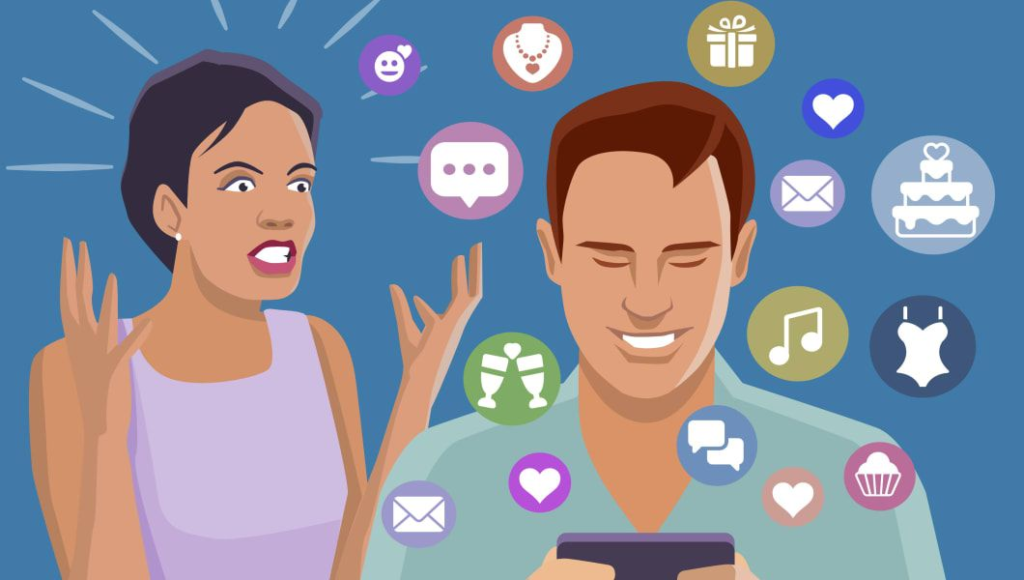
In the age of technology, where connectivity is just a click away, the impact on human relationships is profound and multifaceted. While technology has brought people together across distances, there is a growing concern about its role in fostering social isolation. This article explores the complex interplay between technology, particularly social media, and the potential isolation it can contribute to in human relationships.
- Promise of Connectivity
Technology, especially social media platforms, initially promised to connect people on a global scale. The ability to stay in touch with friends and family, share life moments, and engage with diverse communities became more accessible than ever. Social media platforms became virtual spaces where individuals could express themselves, discover shared interests, and build networks.
- The Social Media Paradox
Despite the promise of connectivity, a paradox emerged. The more connected individuals became online, the more disconnected they seemed to be in their offline lives. Social media, while facilitating digital connections, also introduced challenges to face-to-face interactions. The constant pursuit of online validation and comparison with curated online lives contributed to a sense of isolation in the physical world.
- Shallow Connections and Loneliness
The ease of making digital connections can sometimes result in relationships that are more superficial. The quantity of online connections may not necessarily translate to quality connections. As a result, individuals may experience a sense of loneliness, even amidst a vast online network, as deep and meaningful connections become harder to establish.
- FOMO and Mental Health Impacts
The Fear of Missing Out (FOMO), amplified by social media, can have significant mental health impacts. Seeing others’ highlight reels can lead to feelings of inadequacy and anxiety. The constant exposure to curated and idealized lifestyles can contribute to a sense of isolation as individuals compare their real lives to the seemingly perfect lives of others.
- Digital Communication vs. Face-to-Face Interaction
The prevalence of digital communication tools can impact the quality of face-to-face interactions. Individuals may find it easier to express themselves behind screens, leading to a potential breakdown in genuine communication skills when faced with in-person interactions. This digital reliance can contribute to feelings of isolation in physical social settings.
- Filter Bubbles and Echo Chambers
Social media algorithms are designed to show users content that aligns with their existing preferences and beliefs. While this may enhance user experience, it can create filter bubbles and echo chambers, limiting exposure to diverse perspectives. This homogeneity can contribute to a sense of isolation by reinforcing existing views and isolating individuals from differing opinions.
- Social Isolation: Digital Well-being
Recognizing the impact of technology on social isolation, there is a growing emphasis on digital well-being. This includes encouraging users to set boundaries on their online engagement, take breaks from social media, and prioritize in-person interactions. Tech companies are also introducing features to promote positive online experiences and mitigate the negative effects on mental health.
- Balancing Connectivity and Presence
The key lies in striking a balance between digital connectivity and physical presence. While technology facilitates connections, fostering meaningful relationships requires intentional efforts in the offline world. Encouraging individuals to be present in the moment, engage in face-to-face interactions, and nurture deep connections outside the digital realm is crucial.
- Educating for Healthy Tech Use
Promoting digital literacy and educating individuals about healthy tech use is essential. Teaching users to navigate social media mindfully, be aware of the potential impacts on mental health, and prioritize genuine connections can contribute to a healthier relationship with technology.
- Conclusion
In navigating the impact of tech on human relationships, a nuanced approach is necessary. While technology has the power to connect, it also poses challenges to genuine human connection. Recognizing the signs of social isolation, fostering digital well-being, and prioritizing meaningful offline connections can help individuals navigate the complex digital social landscape. Ultimately, the goal is to leverage technology to enhance, rather than replace, the richness of human relationships.
